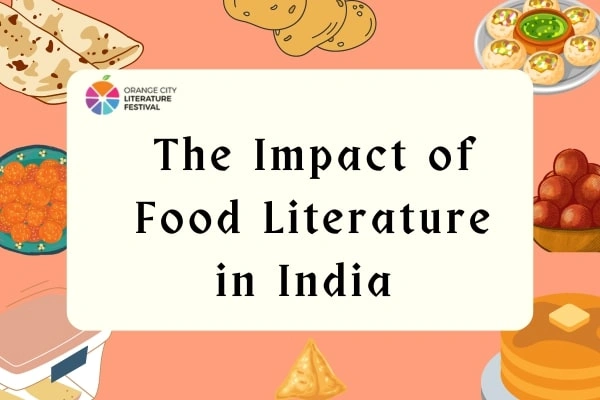- 28th Aug 2024
How many people are there who don't like food? The answer is None. Food is not just about survival, but it's more than that. The food is also a reflection of traditions, values and history. India is a country of festivals where food exhibits and correlated culinary heritage are specific to celebrations. In the Western world, India is highly admired for its array of foods. For a long period, food literature was accustomed to frequent mention of food names, ingredients and recipes, but now the food literature of India includes different genres such as cookbooks, history of food or specific ingredients, culinary essays or fictional accounts which discuss a variety of ingredients, and preparation techniques defining Indian cuisine.

Overview and significance of food literature
Food literature of India is not only about recipes; it explores a connection between the past and present. It describes part of history by giving insights into food's social, cultural, and historical aspects. Food literature tells a story of how and under what circumstances food evolves. Not only the food itself but every ingredient has a story to tell. Here, we must understand that food is not only a culinary art, but in India, it may involve ritual, symbolism or special connection to various communities and regions of India.
While speaking at the Orange City Literature Festival, Nagpur, Kaumudi Marathe, a chef and food author based in the USA, said, "While in the USA, I got tired of hearing, "We love curry." That's when I started researching food history, and we know there's no such thing as curry in India; nobody uses curry powder, so I wanted to set the record straight. I wanted to tell people that Indian food is diverse, and I started writing about it. Indian food is diverse. It is very region-specific. You could travel the entire length and breadth of the country and never eat the same meal twice your whole life." She explored this in detail in her book “Shared Tables: Family Stories and Recipes from Poona to LA.”
Preservation of India's Diverse Culinary Traditions
Like other social dominions, food has its own culture but unfortunately, we don't have sophisticatedly documented ancient food history except for some frequent mentions in holy scripture or history books. Primarily, traditional food was passed on orally from generation to generation.
Sujata Shukla-Rajan is a CA by profession and author of “Bhog Naivedya: Food Offerings to the Gods”, where she gave in-depth details about traditional foods offered to various deities in temples across India. In her blogs, she wrote about conventional regional Indian recipes, including almost forgotten ingredients from her native Tamizh cuisine. Indian food literature helps preserve and celebrate India's varied culinary traditions by exhibiting them through multiple dimensions. There are many uncommon ancestral family recipes we encountered because someone decided to put them on paper. From spicy food from North India to seafood delicacies of Kerala, Indian food literature exhibits extraordinary flavour and aroma, highlighting the food and the region itself.
Inspiring Contemporary Chefs and Food Enthusiasts
Existing food literature inspires many food enthusiasts, contemporary chefs, and food bloggers to explore the origins of food and experiment with flavour and ingredients. Orange City Literature Event attendee and celebrity chef Aditya Bal runs a show called "India's Lost Recipes ', on the Epic channel, where he puts out some very old recipes that people have forgotten. Literature referring to these lost recipes and ingredients inspired him. By providing insights into the historical context and cultural significance of different dishes, food literature encourages chefs to innovate while staying true to the roots of Indian cuisine. Mohana Kanjilal, a food author based in Kolkata, while talking about her book “Food History of Kolkata” at Orange City Literature Festivals, said, "While exploring the various communities at the time of British India, I encountered their food habits which poked me to go in details, and I wrote elaborated food history of Kolkata.”
Food literature in India is not just about recipes and ingredients but a pan-India celebration of culture, tradition, and community. By exploring the intricacies of Indian cuisine through the lens of literature, we can have a deeper appreciation for the flavours, aromas, and textures that define our culinary identity. The impact of food literature on Indian culture is vivid. It is an unending source of inspiration, culinary preservation, and celebration for future generations. Undoubtedly, we will continue to engage with food literature as it connects with our past, spice up the present, and pave the way for a vibrant culinary future.